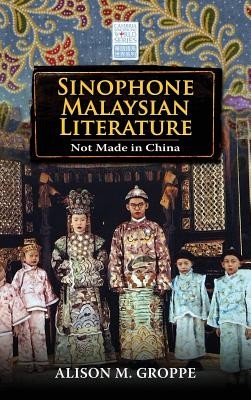
- We will send in 10–14 business days.
- Author: Alison M Groppe
- Publisher: Cambria Press
- Year: 2013
- Pages: 338
- ISBN-10: 1604978554
- ISBN-13: 9781604978551
- Format: 15.2 x 22.9 x 2.2 cm, hardcover
- Language: English
- SAVE -10% with code: EXTRA
Reviews
Description
China's recent economic growth has fed a rapid increase in the study of modern Chinese language and literature globally. In this shifting global context, authors who work on the edges of the literary empire raise important questions about the homogeneity of language, identity and culture that is produced by the modern Chinese literary canon. This book examines a key segment of this literature and asks, "What does it mean to be of Chinese descent and Chinese-speaking outside of China?" While there have been several excellent works that deal with individual Chinese authors from Malaysia, there is to date no broadly framed and comprehensive study of the body of Chinese diasporic literature emerging from this multiethnic, polylinguistic country. This neglect is surprising given the vibrant development of Chinese Malaysian literature.This book fills the gap by looking specifically at how diasporic Chinese subjects make sense of their Chinese and Malaysian identities in postcolonial Malaysia. This book will be of value to scholars and students of Chinese-language literature and culture.It will also appeal to scholars and students in the fields of Chinese and Southeast Asia studies as well as those interested in postcolonial, diaspora, migration, Asian American studies, and world literature.
EXTRA 10 % discount with code: EXTRA
The promotion ends in 20d.19:13:15
The discount code is valid when purchasing from 10 €. Discounts do not stack.
- Author: Alison M Groppe
- Publisher: Cambria Press
- Year: 2013
- Pages: 338
- ISBN-10: 1604978554
- ISBN-13: 9781604978551
- Format: 15.2 x 22.9 x 2.2 cm, hardcover
- Language: English English
China's recent economic growth has fed a rapid increase in the study of modern Chinese language and literature globally. In this shifting global context, authors who work on the edges of the literary empire raise important questions about the homogeneity of language, identity and culture that is produced by the modern Chinese literary canon. This book examines a key segment of this literature and asks, "What does it mean to be of Chinese descent and Chinese-speaking outside of China?" While there have been several excellent works that deal with individual Chinese authors from Malaysia, there is to date no broadly framed and comprehensive study of the body of Chinese diasporic literature emerging from this multiethnic, polylinguistic country. This neglect is surprising given the vibrant development of Chinese Malaysian literature.This book fills the gap by looking specifically at how diasporic Chinese subjects make sense of their Chinese and Malaysian identities in postcolonial Malaysia. This book will be of value to scholars and students of Chinese-language literature and culture.It will also appeal to scholars and students in the fields of Chinese and Southeast Asia studies as well as those interested in postcolonial, diaspora, migration, Asian American studies, and world literature.


Reviews